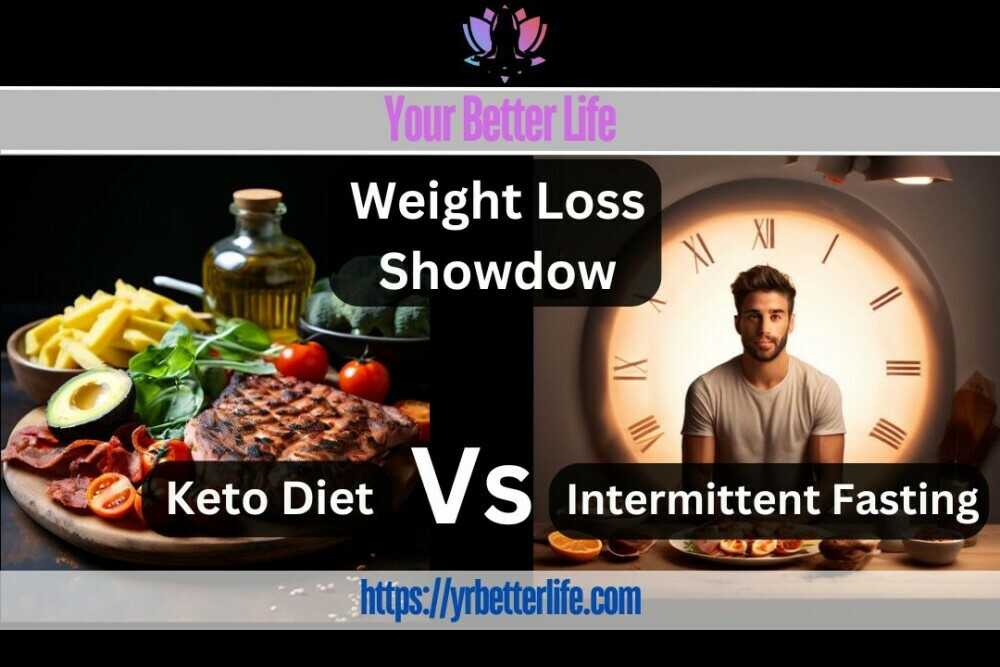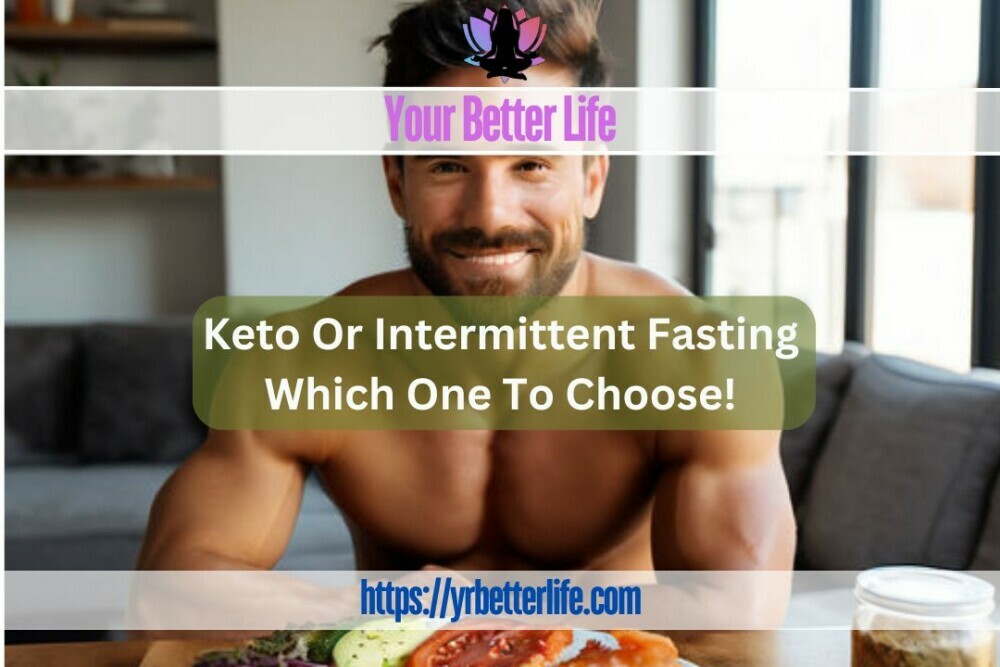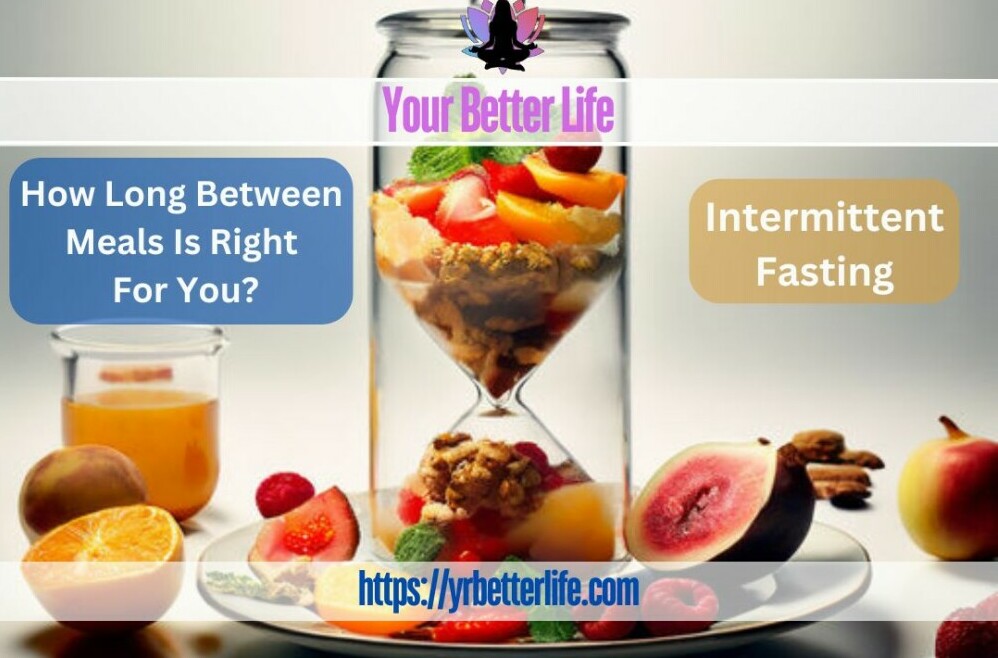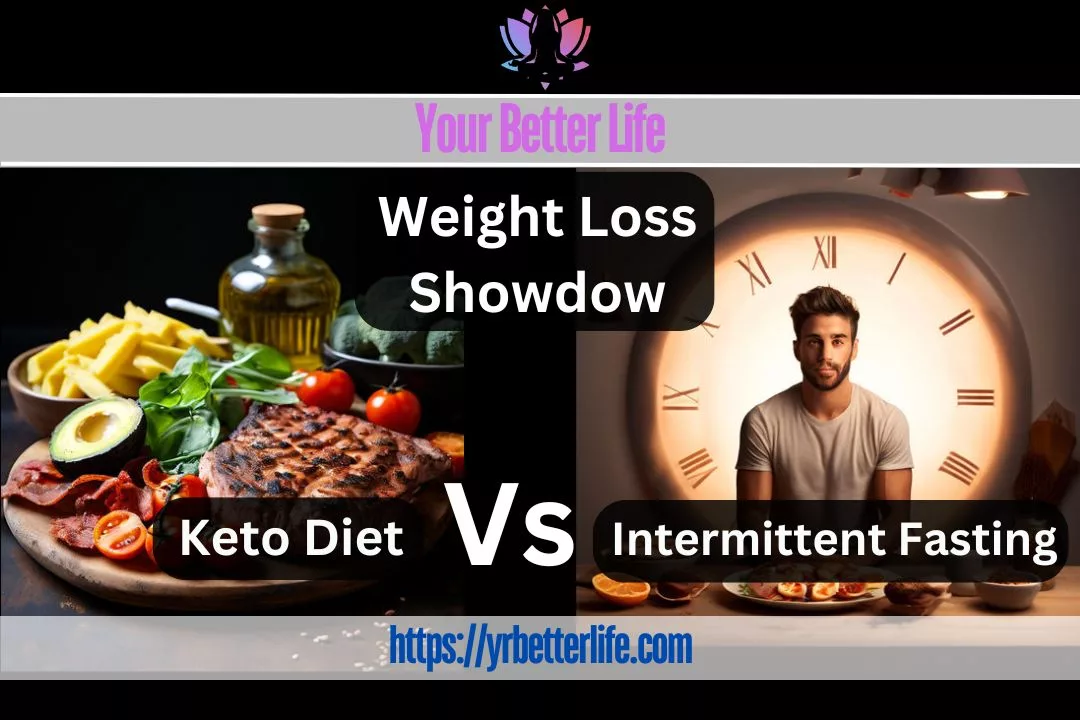
When it comes to weight loss, finding the right method can be overwhelming. Among the myriad of options, two popular strategies stand out: the Ketogenic (Keto) diet and Intermittent Fasting (IF). Both have garnered significant attention and success stories, but which one is more effective? In this comprehensive post, we’ll dive deep into both approaches, exploring their benefits, potential drawbacks, and addressing important considerations for each. Additionally, we’ll cover key topics like when to stop a Keto diet, how long to do intermittent fasting, what intermittent fasting is, and what constitutes healthy weight loss.
Understanding the Keto Diet
What Is the Keto Diet?
The Keto diet is a low-carb, high-fat diet that has been shown to help some people lose weight. The primary goal of the Keto diet is to enter a state of ketosis, where the body burns fat for fuel instead of carbohydrates. This is achieved by drastically reducing carbohydrate intake and replacing it with fats.
How Does the Keto Diet Work?
When you consume a minimal amount of carbohydrates, your body’s glucose levels drop. With limited glucose, the body needs an alternative energy source. It starts to break down fats into ketones, which are then used as fuel. This metabolic state is known as ketosis.
Benefits of the Keto Diet
- Rapid Weight Loss: Many people experience rapid weight loss in the initial stages of the Keto diet due to the body’s shift from burning carbs to burning fat.
- Reduced Appetite: High-fat foods are often more satiating, which can help reduce overall calorie intake.
- Improved Blood Sugar Control: For some, the Keto diet can help stabilize blood sugar levels and improve insulin sensitivity.
Potential Drawbacks of the Keto Diet
- Nutrient Deficiencies: Restricting carbs can lead to a lack of essential nutrients found in fruits, vegetables, and grains.
- Keto Flu: Initial side effects like headaches, fatigue, and irritability are common as the body adjusts to ketosis.
- Sustainability Issues: Long-term adherence to the Keto diet can be challenging for many due to its restrictive nature.

Keto Or Intermittent Fasting Which One to Choose!
Understanding Intermittent Fasting
What Is Intermittent Fasting?
Intermittent Fasting (IF) is an eating pattern that alternates between periods of fasting and eating. Unlike traditional diets, IF focuses on when you eat rather than what you eat.
How Does Intermittent Fasting Work?
During the fasting periods, your body uses up its glucose stores and begins to burn fat for energy. The most common methods include:
- 16/8 Method: Fasting for 16 hours and eating during an 8-hour window.
- 5:2 Diet: Eating normally for 5 days and restricting calories (around 500-600) for 2 non-consecutive days.
- Eat-Stop-Eat: Fasting for 24 hours once or twice a week.
Benefits of Intermittent Fasting
- Weight Loss: IF can help reduce calorie intake and increase fat burning.
- Improved Metabolic Health: IF has been shown to improve insulin sensitivity, blood sugar levels, and other metabolic markers.
- Simplicity and Flexibility: IF doesn’t require you to change what you eat, only when you eat, making it easier to stick to for many.
Potential Drawbacks of Intermittent Fasting
- Hunger and Cravings: Fasting periods can be challenging, especially in the beginning.
- Overeating: Some people may overeat during the eating window, negating the calorie deficit achieved during fasting.
- Not Suitable for Everyone: IF may not be appropriate for people with certain medical conditions or who have a history of eating disorders.
When to Stop a Keto Diet: What to Know
The Keto diet can be highly effective for some, but it’s not meant to be a permanent lifestyle for everyone. Here are some signs and considerations for when you might need to stop:
- Plateauing Weight Loss: If weight loss stalls for an extended period, it might be time to reassess your diet.
- Nutrient Deficiencies: Persistent deficiencies in vitamins and minerals, despite supplementation, can be a red flag.
- Digestive Issues: Chronic constipation, diarrhea, or other gastrointestinal problems may indicate that the diet isn’t suitable for you.
- Lifestyle Incompatibility: If the restrictive nature of the Keto diet is causing significant stress or affecting your quality of life, it may be worth considering other options.

How Long Between Meals Is right for you?
How Long Should You Do Intermittent Fasting?
The duration for which one should do Intermittent Fasting varies from person to person. Here are some general guidelines:
- Short-Term Goals: For those looking to lose a few pounds or improve metabolic health, a few weeks to a few months may suffice.
- Long-Term Lifestyle: Some people find IF sustainable and beneficial as a long-term eating pattern. It’s important to listen to your body and adjust as needed.
- Monitoring and Adjusting: Regularly monitor your health markers and overall well-being. If you experience adverse effects, consult with a healthcare professional and consider modifying your approach.

What is healthy weight loss for you?
What Is Healthy Weight Loss?
Healthy weight loss is more than just a number on the scale. It involves achieving a sustainable and balanced state of well-being. Here are some key components:
- Balanced Nutrition: Ensure you’re getting a variety of nutrients from different food groups, including fruits, vegetables, lean proteins, and healthy fats.
- Physical Activity: Incorporate regular exercise into your routine to support weight loss and overall health.
- Mental and Emotional Health: Address any underlying emotional or psychological factors that may be contributing to unhealthy eating habits.
- Gradual Progress: Aim for a weight loss of 1-2 pounds per week, which is considered safe and sustainable.
- Consistency Over Perfection: Focus on making consistent, healthy choices rather than striving for perfection.
Keto vs. Intermittent Fasting:
Which One Wins?
Now that we’ve explored both the Keto diet and Intermittent Fasting in detail, it’s time to compare their effectiveness for weight loss.
Weight Loss Effectiveness
- Keto Diet: Often results in rapid initial weight loss due to water loss and ketosis. It can be highly effective for those who can adhere to its restrictions.
- Intermittent Fasting: Can also be effective for weight loss, especially when it helps control overall calorie intake. The results may be more gradual compared to the Keto diet.
Sustainability
- Keto Diet: May be difficult to sustain long-term due to its restrictive nature. Some people transition to a modified low-carb diet after reaching their goals.
- Intermittent Fasting: Offers more flexibility and can be easier to incorporate into a long-term lifestyle for many.
Health Benefits
- Keto Diet: Can improve blood sugar control and reduce insulin resistance. However, potential nutrient deficiencies and digestive issues are concerns.
- Intermittent Fasting: Can improve metabolic health, enhance insulin sensitivity, and promote autophagy (cellular repair). It’s generally considered safe for most healthy individuals.
Personal Preference and Lifestyle
- Keto Diet: Suitable for those who prefer a structured eating plan and can adhere to strict guidelines.
- Intermittent Fasting: Suitable for those who prefer flexibility and can manage hunger during fasting periods.
Conclusion
Ultimately, the choice between the Keto diet and Intermittent Fasting depends on your individual preferences, lifestyle, and health goals. Both approaches have their merits and can be effective for weight loss and improving overall health. It’s important to choose a method that you can sustain long-term and that supports your overall well-being. Consulting with a healthcare professional or a registered dietitian can provide personalized guidance to help you make the best decision for your unique needs.
Remember, healthy weight loss is a journey, not a race. Focus on making sustainable changes that promote long-term health and happiness.
If you like this post you might also like my article on Chia Vs Basil Seeds
https://yrbetterlife.com/chia-seeds-vs-basil-seeds-do-you-really-know-the-best-one/
With warmth & compassion
Shaun

